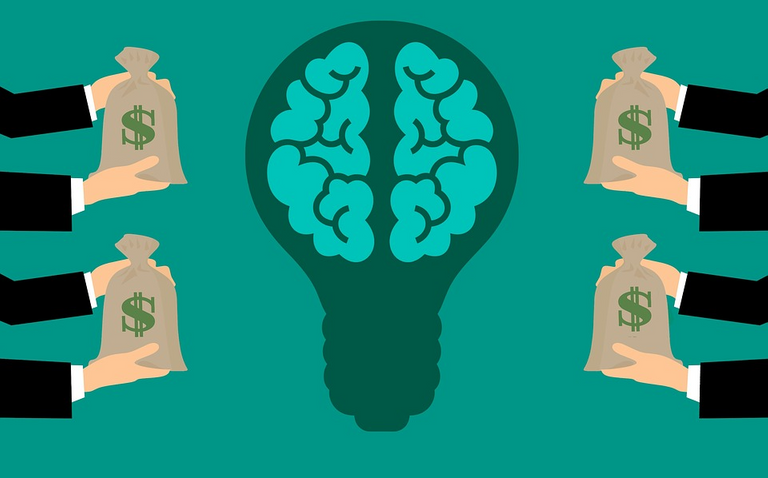Business, entrepreneurship, and leadership micro-summaries for July 9, 2019
Adaptability outweighs intelligence or empathy; Rigged economies protect the 1% and harm the rest; 5 innovations from the Apollo program; Trying to future-proof Walmart's workforce; Learning about science writing from MIT
Straight from my RSS feed:
Links and micro-summaries from my 1000+ daily headlines. I filter them so you don't have to.
- 3 ways to measure your adaptability -- and how to improve it - In this TED talk, tech investor Natalie Fratto says that her main criteria for start-ups is their adaptability. She says that one's adaptability quotient can be measured by asking "what if" questions, looking for signs of unlearning - the ability to question and revise what a person thinks they know; and finding signs that a person "infuses exploration" in their behaviors by maintaining "a state of constant seeking". She goes on to suggest that anyone can improve their own adaptability by asking "what if" questions, practicing unlearning, and engaging in exploration. She also suggests that adaptability, or AQ - "how well a person reacts to the inevitability of change", is more important than IQ or EQ in today's world.
- To Create More Opportunity, Clear the Rigging From the Economy - The article argues that when politicians pick winners and losers, it creates more friction than opportunity. Politicians grandstand on ribbon cuttings and signing ceremonies, but they frequently direct money into "sweetheart deals for politically connected corporations. These deals often harm more principled businesses and consumers. The article draws attention to a particular example of this in the form of licensing requirements, where one in four of American occupations now require some form of licensing, even in absurd fields like floral designers and interior decorator. Other examples include protectionism and so-called "tax extenders". The article closes on this optimistic note: "People of good faith, from all political stripes, should join together to unrig our economy and create an atmosphere of opportunity."
- Opinion: 5 innovations the Apollo moon program brought that changed our life on Earth - Rockets, satellites, miniaturization, a global network of ground stations, and looking back at Earth. The significance of "Earthrise" was also covered in Science and technology micro-summaries for July 3, 2019.
- Walmart's Workforce of the Future - Harvard's William Kerr describes the findings of his case study of Walmart. Kerr points out that 90% of Americans live within 10 miles of a Walmart store, but that the company's size and dominance don't exempt it from competitive realities including reskilling and other hard business choices. Revenue has been growing at Walmart's super stores, but declining at its discount stores. The company has responded by increasing its super stores, and beefing up its technology with the purchase of jet.com. A consequence of technology is that new jobs are created, but the nature of the work is changing - even at the entry level, so training includes a "Pathways" program that focuses on building transferable, long-term skills, and teaches associates about the retail business model - teaching the "why" behind the things they are asked to do. The company has also rolled out an online degree benefit at a cost of $1 a day for employees. Kerr closes by saying that they are still "defining the Walmart of the future" and that it's still too soon to anticipate the results of their efforts.
- STEEM MIT OpenCourseWare: Science Writing and New Media: Science Writing for the Public - MIT's Science Writing and the New Media is available for free. Based on the Spring/2018 course, @rycharde says that it is mostly comprised of reading material, so it may be a challenge for the learner who prefers to watch lectures. For those who like to learn by reading, however, @rycharde adds that it contains many useful resources. (@rycharde will receive 5% of the rewards from this post.)
In order to help make Steem the go to place for timely information on diverse topics, I invite you to discuss any of these links in the comments and/or your own response post.
For example, feel free to comment on any or all of these discussion topics:
- What do you think of Fratto's contention that AQ is becoming more important than IQ or EQ?
- Can you think of any other important innovations that came out of the Apollo moon program or other NASA initiatives?
- What do you think of Walmart's efforts to prepare their workforce for the future. Is there anything they're missing or do you disagree with things that they're doing?
- Have you done any training with MIT's open courseware? Will you consider taking the course on science writing?
- Feel free to discuss any topic relating to the links in this post.
About this series
Note: Sharing a link does not imply endorsement or agreement, and I receive no incentives for sharing from any of the content producers.
Follow on steem: @remlaps-lite, @remlaps
If you are not on Steem yet, you can follow through RSS: remlaps-lite, remlaps.
Thanks to SteemRSS from philipkoon, doriitamar, and torrey.blog for the Steem RSS feeds!
0
0
0.000
0 comments
